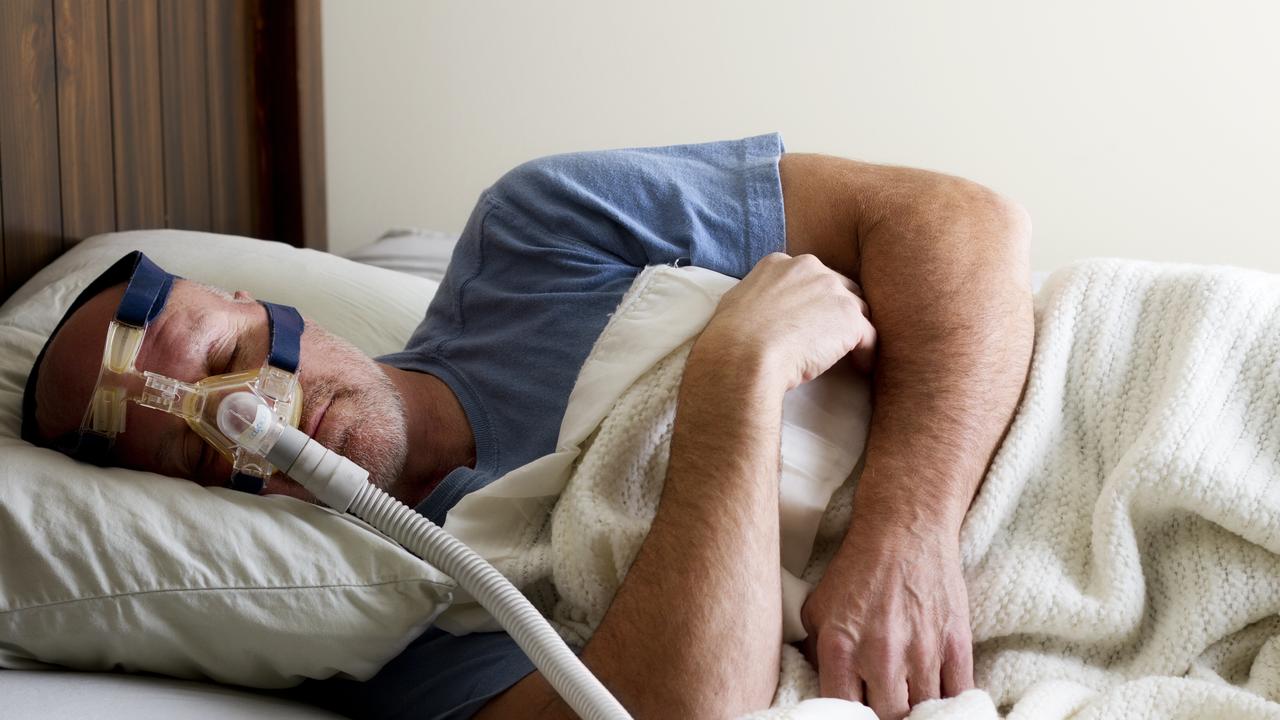In recent years, there has been a growing recognition of the importance of sleep in maintaining overall health and well-being. As more Australians seek to understand their sleep patterns and address issues like sleep apnea, home sleep tests have emerged as a practical solution. This article delves into the benefits of completing sleep tests at home, focusing on convenience and accuracy while exploring the uptake of this innovative approach across Australia.
Understanding Sleep Tests
Sleep tests, also known as polysomnography, are used to diagnose various sleep disorders. They measure multiple parameters during sleep, including brain activity, eye movements, heart rate, and breathing patterns. Understanding what a sleep test entails is the first step towards comprehending its significance.
The popularity of home sleep test at Australia due to various factors, including technological advancements and the growing awareness of sleep health. Many Australians are looking for solutions that fit seamlessly into their modern lifestyles.
What is a Sleep Test?
A sleep test is a medical assessment that evaluates your sleep patterns and any disturbances that may occur during the night. Traditionally conducted in sleep clinics, these tests assess how well you sleep and can identify conditions such as obstructive sleep apnea, insomnia, or restless legs syndrome.
In a clinical setting, patients are hooked up to various devices that transmit data to healthcare professionals. However, recent advancements have led to the development of home sleep tests, which have become a more popular alternative. These at-home solutions offer a less formal environment, yielding valuable insights about sleep health without the need for a hospital stay.
During a sleep test, electrodes are placed on the scalp, face, and body to monitor brain waves, muscle activity, and other physiological signals. This data is crucial for understanding the different stages of sleep, including REM (rapid eye movement) and non-REM sleep. Each stage plays a vital role in physical and mental restoration, making it essential to identify any disruptions that may occur throughout the night. The results of these tests can help healthcare providers recommend lifestyle changes, therapies, or even surgical options if necessary.

The Importance of Sleep Tests
Sleep tests are crucial for diagnosing sleep disorders that could lead to significant health risks if left untreated. Conditions such as sleep apnea can result in cardiovascular problems, metabolic abnormalities, and increased fatigue. By identifying and addressing these issues, individuals can enhance their overall quality of life.
Furthermore, sleep tests are essential for tailored treatment plans. Each patient has unique sleep habits and health considerations; therefore, a proper diagnosis using these tests ensures that treatments are specific and effective. Awareness of sleep disorders also encourages individuals to make necessary lifestyle changes to promote better sleep hygiene. Read more about hygiene at https://www.cdc.gov/hygiene/about/index.html
In addition to individual health benefits, understanding sleep disorders through these tests can contribute to broader public health initiatives. As more people become aware of the importance of sleep, there is potential for reducing the prevalence of related conditions such as obesity and diabetes, which are often exacerbated by poor sleep quality. Public health campaigns can leverage data from sleep studies to educate communities about the importance of sleep, fostering a culture that prioritizes rest and recovery as essential components of overall well-being.
The Rise of Home Sleep Tests in Australia
Why Home Sleep Tests are Gaining Popularity
One key reason behind the rise of home sleep tests is accessibility. Traditional sleep studies often require lengthy waiting periods for appointments at specialized clinics, which can be inconvenient for many individuals. Home sleep tests simplify this process, providing immediate access to diagnostic tools without the hassle of scheduling and travel.
Moreover, the stigma surrounding sleep disorders has decreased, prompting individuals to seek help proactively. As more Australians recognize the importance of sleep, there is a higher demand for practical and effective testing solutions that can be performed in the comfort of their own homes. This shift in perception is also supported by educational campaigns that emphasize the critical role of sleep in overall health, encouraging people to prioritize their sleep quality.
Additionally, the convenience of home sleep tests aligns perfectly with the increasingly busy lifestyles of many Australians. With work commitments, family responsibilities, and social obligations, finding time for a traditional sleep study can be challenging. Home sleep tests allow individuals to conduct their assessments at their own pace, often leading to more accurate results as patients can sleep in their natural environment, free from the stress of a clinical setting.
The Role of Technology in Home Sleep Tests
Technology plays a pivotal role in the functionality of home sleep tests. With the introduction of compact monitoring devices, patients can easily and comfortably record their sleep activity. These devices typically include sensors that measure breathing patterns, heart rates, and oxygen levels during sleep.
Furthermore, the data collected can be conveniently uploaded to online platforms for analysis by healthcare professionals. This technological evolution ensures that the accuracy and reliability of sleep tests conducted at home meet the same standards as those done in clinical environments. Innovations such as smartphone apps and wearable technology have also made it easier for users to track their sleep patterns over time, providing valuable insights that can inform both personal health decisions and medical consultations.
In addition to the monitoring devices, advancements in artificial intelligence are beginning to enhance the interpretation of sleep data. Algorithms can analyze the collected information to identify patterns and anomalies, allowing for quicker and more precise diagnoses. This integration of AI not only streamlines the process but also empowers healthcare providers to offer tailored treatment plans based on individual sleep profiles. As technology continues to evolve, the potential for home sleep tests to provide comprehensive insights into sleep health is likely to expand even further, making them an indispensable tool in the fight against sleep disorders.Learn more about by clicking here
Convenience of At-Home Sleep Tests
The convenience offered by at-home sleep tests is a major advantage that attracts individuals seeking diagnosis and treatment for sleep disorders. The thought of needing to stay overnight in a clinic can be daunting for many, and home sleep tests alleviate those concerns.

No Need for Hospital Stays
One of the most significant benefits of home sleep tests is the elimination of hospital stays. Patients can simply sleep in their own beds, free from the unfamiliar and often uncomfortable settings of a hospital. This familiar environment can lead to more natural sleep patterns, resulting in more accurate data collection.
Additionally, the reduced need for hospital resources allows for a more streamlined process. With at-home options, testing can be arranged at the patient’s convenience, enhancing overall satisfaction with care.
Flexibility and Comfort in Your Own Environment
Choosing to conduct a sleep test at home adds flexibility to the patient’s schedule. This means less disruption to their daily life. Patients can fill out necessary questionnaires and conduct the tests without worry, making it easier to balance work, family, and social commitments.
Furthermore, comfort is paramount. Home sleep tests allow individuals to follow their own bedtime routines and behaviors, providing a more authentic representation of their actual sleep patterns.
Accuracy of Home Sleep Tests
While convenience is vital, the accuracy of home sleep tests is equally important. Potential patients may question whether these tests can truly provide reliable diagnoses when performed outside of a clinical environment. Understanding this aspect is crucial for informed decision-making.
How Reliable are Home Sleep Tests?
Studies suggest that home sleep tests can be quite reliable in diagnosing certain sleep disorders, particularly obstructive sleep apnea. When administered correctly, these tests offer results that are comparable to traditional in-lab studies, thus providing sufficient data for accurate evaluations.
However, it is essential to note that for specific conditions or complicated sleep-related issues, in-lab tests may still be necessary to ensure comprehensive analysis. Consulting with healthcare professionals is crucial to determine the most appropriate method for each individual.
Ensuring Accurate Results with Home Sleep Tests
To maximize the accuracy of home sleep tests, patients must follow all provided instructions carefully. This includes wearing devices correctly and maintaining a consistent sleeping environment. Regular communication with healthcare providers before, during, and after testing is also vital to interpret results effectively.
Following these guidelines helps avoid potential inaccuracies and ensures a strategic approach to treatment, underscoring the importance of a well-rounded understanding of sleep health.
Choosing the Right Home Sleep Test
As the market for home sleep tests continues to grow, individuals must equip themselves with the knowledge to make informed decisions. Understanding various factors associated with home sleep testing can lead to better outcomes in diagnosing and treating sleep disorders.
Factors to Consider When Choosing a Home Sleep Test
When selecting a home sleep test, potential users should consider the following factors:
- Type of Conditions Covered: Ensure the test is suitable for the specific sleep disorders you are suspecting.
- Device Comfort: Check that the device is easy to wear and doesn’t disrupt sleep.
- Data Processing: Understand how data collected will be analyzed and reported.
- Support and Guidance: Choose a provider that offers thorough support throughout the testing process.
Understanding the Different Types of Home Sleep Tests
There are several types of home sleep tests available, which can vary in functionality and purpose. Some tests monitor basic parameters like oxygen levels and heart rate, while others provide more detailed assessments of sleep stage and breathing patterns.
Before choosing a home sleep test, it’s crucial to consult with a healthcare professional who can guide you towards the most suitable option based on your individual sleep health needs. By making an informed choice, individuals can take significant strides toward improving their sleep health and overall well-being.

